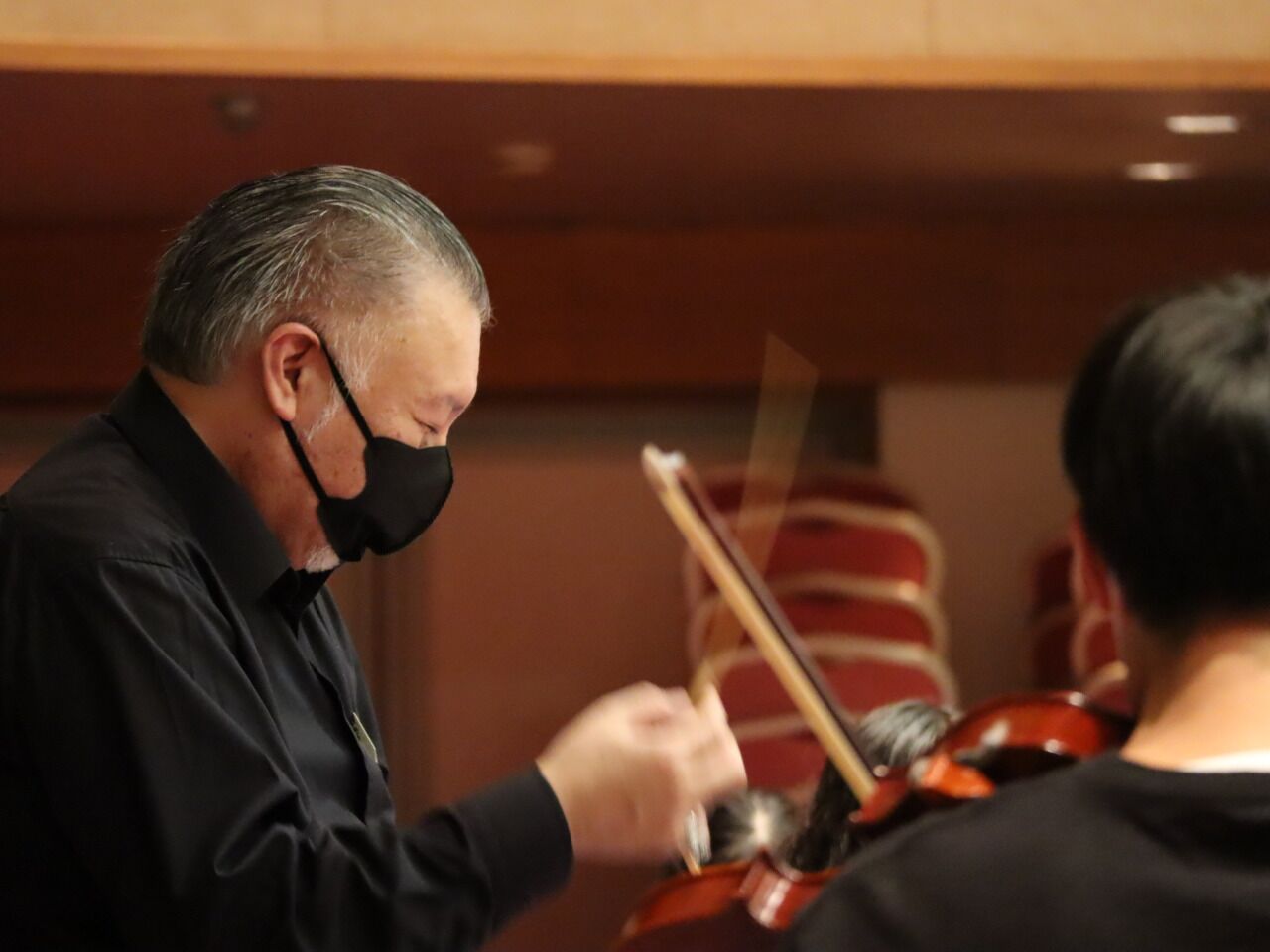Our special guest was Shinozaki Fuminori, also known as "MARO".
The trees in Fukushima are vibrantly colored at the end of October.
Today's practice started with a single comment from Iijima: "Anyone who isn't coming to practice today is really missing out!"

"This will be a different kind of practice than usual, including learning about what an orchestra is, so I hope you will absorb everything today," said Iijima, and the crowd immediately began to sing along.

good morning!
Let's move forward while making some noise! Let's start from the beginning!
When a member of the orchestra reported, "The first trumpet is not here today..."
Go ahead, go ahead and blow it! You don't get many opportunities like this lol
And so began the instruction from the very easygoing and energetic Mr. MARO.



The expressions and quotations used to help the orchestra members understand were also exquisite and left a lasting impression.

The number 3 is very important, right?
The Father, the Son, and the Holy Spirit. What happens twice happens three times. The Buddha has three faces. There were three wise men when Christ was born. Lord Shiva has three eyes. The present, the past, and the future.
This "3" is very important, and we have to do something, either to resolve it or to develop it further.
So, before we get to the third step, the Yatata Turn, can you please refocus your mind?

Don't understand it the way it's written in the dictionary.
I'm already tired today, so tired! I want to move forward, but I want to be in a state where I'm not moving forward. It's a marching piece, but please play it as if I'm dragging myself along.
Let's go!

This half note, well, it's kind of like when your mom tells you to "Hurry up and clean up!" and you let out a little sigh, you know?

I need three fortes here, right? Let's focus on these half notes for the three fortes. Like the pickled vegetables that come with curry. It would be lonely without them lol

Let's do this after lunch. That way I won't have to play something I'm sleepy at the time lol
The morning was filled with words of humor and compassion.
What was most impressive throughout MARO's instruction was the encouragement he gave us.

The trumpet is perfect!

Don't worry about anything, you'll be able to play it in 3 months!

Who is the smallest? A fourth grader? A fifth grader?
Let's pretend we didn't see these little notes. Is it okay to say that? The NHK Symphony Orchestra is playing it properly though lol
You just need to know what's important.

During the afternoon question time, in response to the question, "What classical music would you like the members of the Tohoku Youth Orchestra to listen to?"
Mahler's time was a time when the world changed dramatically, and people changed.
By the way, there are two periods when humans changed greatly: the Renaissance and Art Nouveau.Portraits were replaced by photographs, horse-drawn carriages were replaced by trains, mail delivery was replaced by telephones, and candlelight was replaced by lamps.
Anything that changes greatly will also show up in music. Therefore, when studying music, there are quite a few complex and mysterious things.It's fine to listen to it with interest, but if you don't know what came before, it's hard to understand. You can't reach it.
So, when playing Mahler, I think it's a good idea to listen to Romantic works first. What do you think?
He answered politely, ``Yes, I understand.''
MARO also brought his violin, and we were able to receive some very generous instruction, but instead of asking a question, the band members made a request: "We want to hear a live performance!"




The piece they performed here. Why did they choose it for us to listen to?
And why did he end with the words, "So, let's go vote!?"
It was a special event only for those who were there.

In his book "MARO's Guide to Favorite Music ~With the Force" (published by Ongaku No Tomosha), in the section "Teachings of my Masters, Educational Methods of my Parents," he writes:
"(In Kokura dialect) Education is not about teaching, it's about nurturing! It's about developing a child's individuality! When strengths are combined with weaknesses, those weaknesses become individuality! (Omitted) These words are unforgettable. (Omitted) I am proud of everything about being born as the son of my parents and having been raised in this way."
It is written that today's practice session with the Tohoku Youth Orchestra felt like exactly that kind of opportunity.
In reference to MARO's comment at the beginning, "The number 3 is very important,"
[Be energetic!][Use the perfect phrases to draw them in!]And [Praise them without pause!]It was a six-hour period in which I was able to experience these three powerful elements.